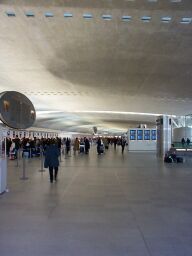
 |
In the Paris airport. Woo-hoo. |
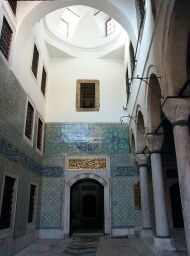 |
A gateway inside the harem. |
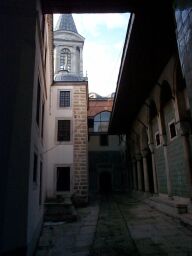 |
A small courtyard in the harem, the Tower of Justice above. |
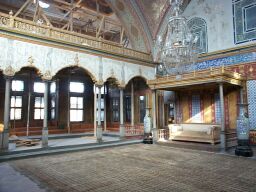 |
The Sultan's receiving room in the harem. |
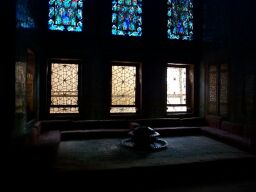 |
A kiosk in the harem. |
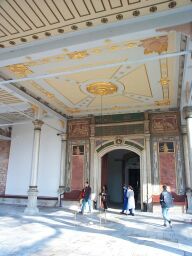 |
The Gate of Felicity (separating the 2nd and 3rd courts). |
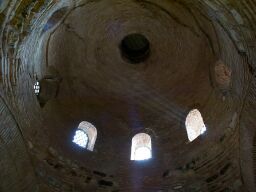 |
In the kitchens. |
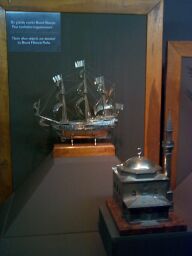 |
A silver ship and mosque. |
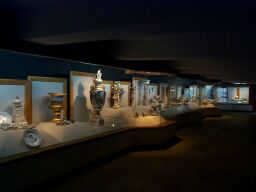 |
The china + porcelain. |
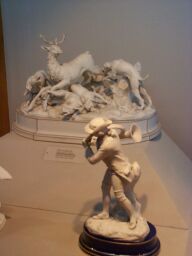 |
A porcelain hunting scene. |
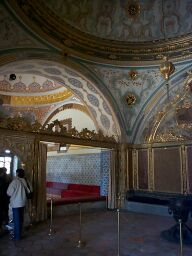 |
The Council Chambers (the grill where the Sultan would listen is |
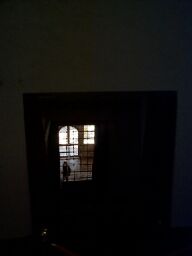 |
Looking down from the other side of the grill. |
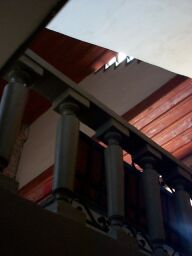 |
Looking up the tower steps. |
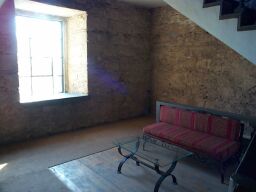 |
A room halfway up the tower. |
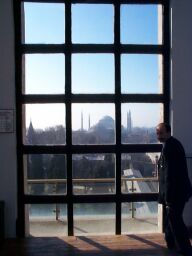 |
Looking from inside the top of the Tower of Justice, |
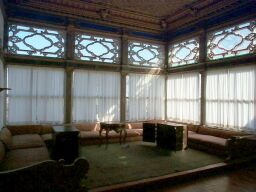 |
A kiosk in the 4th court. |
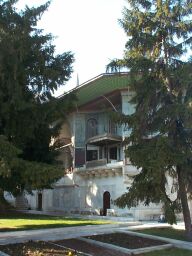 |
A private balcony above the garden in the 4th court. |
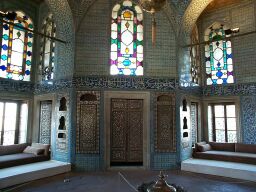 |
Another kiosk. |
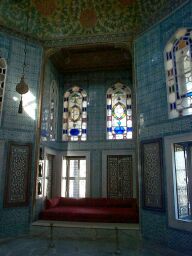 |
Yet another kiosk. |
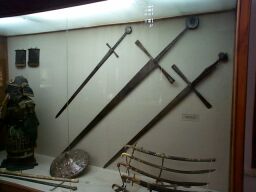 |
Weapons. |
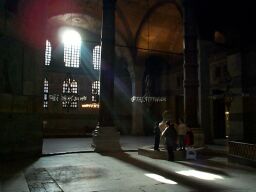 |
Inside the Aya Sofya. |
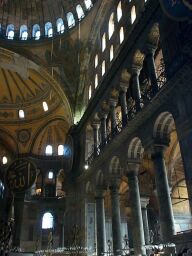 |
Looking up at the galleries and ceiling. |
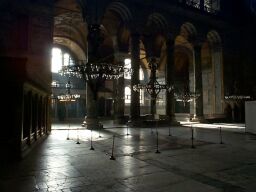 |
The Coronation Square: here the Emperors of the Eastern |
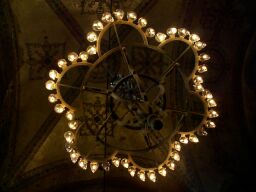 |
Lying on the floor, looking through one of the light |
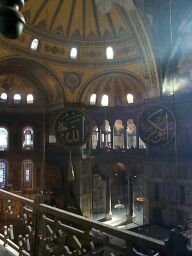 |
The view from the gallery. |
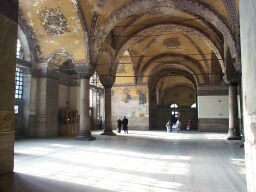 |
Mosaics in the gallery. |
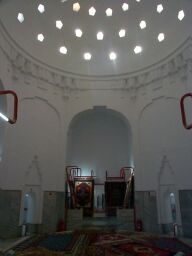 |
In the old bath house, now a government carpet shop. |
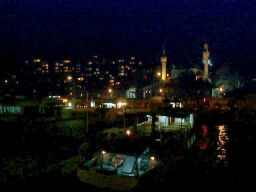 |
From the ferry, looking at Uskundar. |
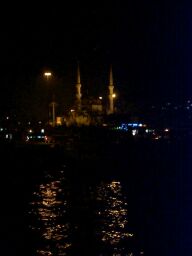 |
A view of the mosque from the water. |
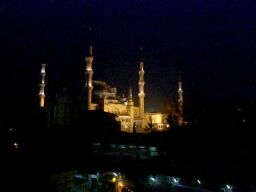 |
The Blue Mosque at night (from my hotel). |
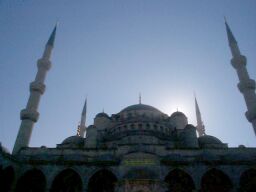 |
Looking up at the Blue Mosque. |
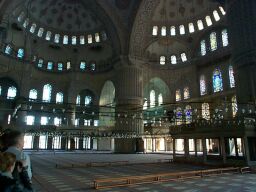 |
The interior of the Blue Mosque. |
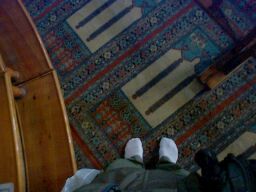 |
Shoes off. |
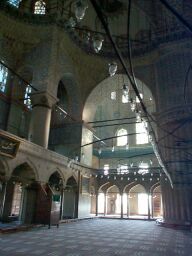 |
Blue tiles everywhere. |
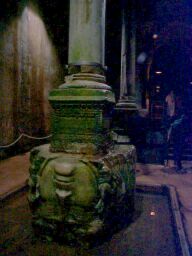 |
A medusa's head (the camera was struggling with the light here). |
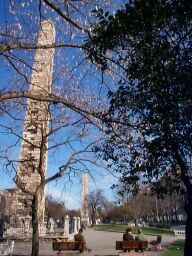 |
Looking down the Hippodrome. |
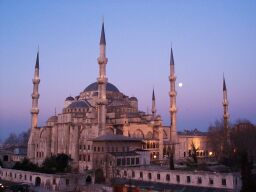 |
The Blue Mosque at dawn (that white thing is the moon). |
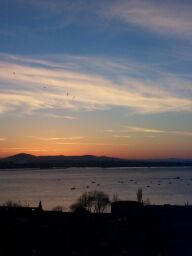 |
Sunrise over the Sea of Marmara. |
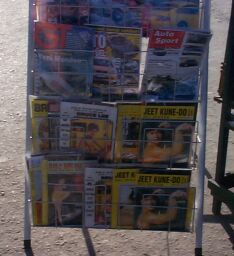 |
Bruce Lee and Jackie Chan on the quay. |
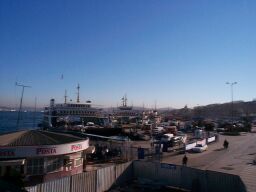 |
Ferries at Eminonu. |
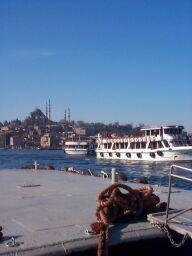 |
Ferries maneuvering in the Golden Horn, a mosque in the background. |
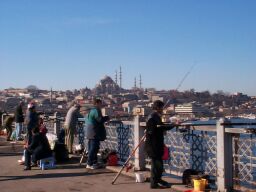 |
Fishermen on Galatay bridge. |
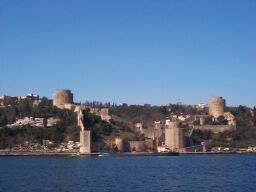 |
A fortress on the European side. |
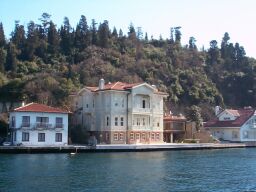 |
Houses on the water. |
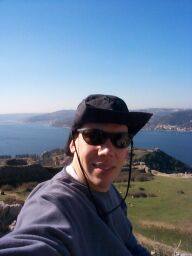 |
On top of the fort at Anadolu. Asia in foreground, Europe in back. |
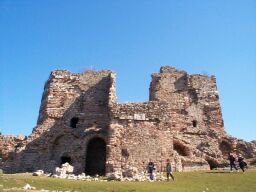 |
The fortress from below. |
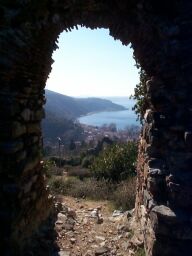 |
Looking back down at the town + Bosphorus. |
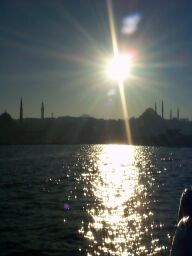 |
Coming back in to Eminonu. |
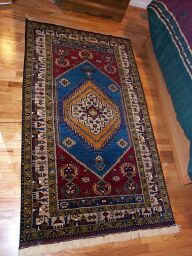 |
The Turkish Carpet. |
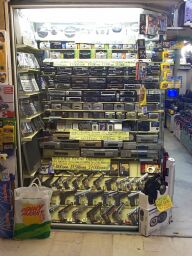 |
A shop for men: cameras, stereos, calculators, and guns. |